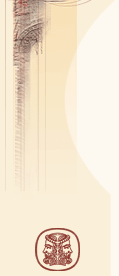 |
Obituary
EDWARD GOY [1926-2000]
Slavonic scholar too modest to boast of his insight into Balkan problems
The Times, London, March 23, 2000
Edward Goy, TD, lecturer in Slavonic Studies, was born on September 22, 1926. He died on March 13 aged 73
GOY was Britain's leading expert on Croatian and Serbian literature, and one of the foremost authorities on South Slav culture and history. Despite the collapse of Yugoslavia during the 1990s, admiration for his work remained unstinting in both Belgrade and Zagreb, and in 1999 he was recommended for election to both the Serbian and the Croatian Academies of Sciences.
Brilliant and startling contrasts were keynotes to his life and achievement. Born in 1926 in Enfield, Middlesex, Edward Dennis Goy was brought up by his mother, a strong-minded woman who was the 11th child of a Sun- derland miner and later built up her own business as a clothes designer. His father, a Hull silk-trader, was descended from a long line of Huguenot merchants.
Goy grew up in Hampshire and attended Churches College in Petersfield. After a spell as a teacher at private schools in Devon and Woking, he returned to Hampshire to finance the rest of his own secondary education. On his army call-up in August 1945 he was sent to Cambridge to complete the Joint Services Russian Course. In 1946 he was sent to Poland and Germany as an interpreter. After demobilisation in 1948 he went back to Queens' College, Cambridge. He also joined the Territorial Army, rose to the rank of major and won the TD. In later years he recalled the camaraderie of his army days with affection.
In Cambridge, the Slavonic scholar Elizabeth Hill recommended that he read Serbo-Croat alongside Russian. He graduated in 1951 with a starred first. Much of the research for his doctoral thesis - about Russian influences on Serbian thought and literature - was done between 1951 and 1954 in Belgrade and Zagreb, and he made friends with many Yugoslav writers, leading to several significant correspondences.
From 1954 to 1990 he was a Cambridge lecturer in Slavonic Studies. Russian teaching at Cambridge was unexceptional in the 1960s, and Goy's innovatory, Leavis-influenced approaches to textual analysis aroused suspicion and hostility. When he saw colleagues penalising his students in exams for approaches and views learnt from him, he beat a tactical withdrawal and refused to teach Russian again.
At least in Serbo-Croat he had more freedom to infect his students with his own passionate love of literature, his de- votion to open critical methods, and his refusal to accept humbug. He was loved and admired by undergraduates as a fine and inspiring teacher - humanistically generous and personally kind, verbally witty and intellectually demanding, unfailingly critical of intellectual faddishness and prepared to stick his neck out over issues of principle. Students of his who went on to achieve distinction include two British ambassadors to the former Yugoslavia, as well as literary and linguistic scholars and translators.
From the 1960s onwards, Goy consistently refused to visit Yugoslavia, despite many invitations, owing to his disapproval of Tito. Still, the twin realities of a Yugoslav literature and a Yugoslav culture remained meaningful to him, and he kept in close contact with unfolding events.
Coinciding with the imminent break-up of Yugoslavia, his retirement in 1990 was unfortunately the signal for Cambridge to remove Serbo-Croat from its syllabus. During the 1990s there was a pro- liferation of new British "experts" on Yugoslavia, many of them unable to speak a word of any of its languages and ignorant of the country's history, but Goy was never invited to offer views or analyses by the Foreign Office, let alone newspapers, radio or television. A modest, just person, he would never have dreamt of putting himself for- ward. He was, however, a leading and articulate British opponent of the bombing of Serbia by Nato last year.
His literary criticism was wide-ranging and influential, though circulated in the most modest of ways. His forty es- says and monographs on Serb-ian and Croatian literature still await collection. He was also a prolific translator of fiction, poetry and folk literature.
Already twice a widower, in 1997 he married Jasna Levinger, a linguist from Sarajevo, and with her he began a series of new translations, including Mesa Selimovic's novel The Fortress and Miroslav Krleza's The Banquet in Blitva. They had just started translating Milos Crnjanski's A Novel about London when he collapsed and died.
// Projekat Rastko / Književnost / Nauka o književnosti //
[ Promena pisma | Pretraga | Mapa projekta | Kontakt | Pomoć ]
|


